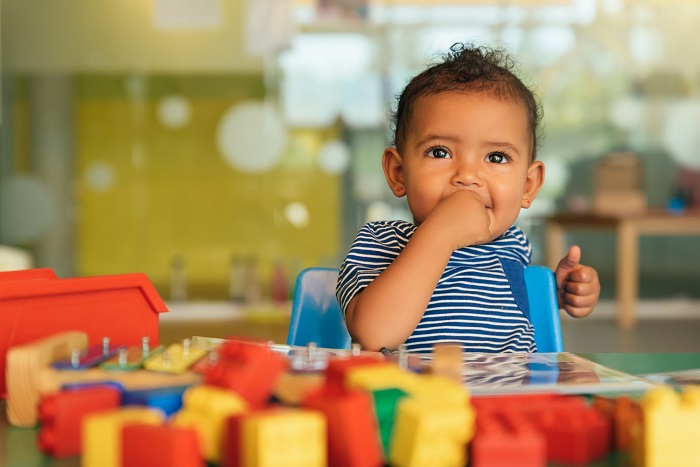Do you have fears about the separation anxiety your children might go through if they go to Preschool? Do you think sending them to a structured learning environment comes too soon?
You should know this: children at preschool age are like sponges, absorbing information far more rapidly than you would ever think. While homeschooling your kids at this age may give them an excellent academic start, it will fail to impart other skills that will serve them well for the elementary education years. Read more about the best age to join preschool.
Here are the Top Reasons Why Preschool is a Must for Your Child
1. Helps Prepare for Elementary School
You don’t have to think your child is growing up too soon, what with all those pre-math and pre-literacy skills they have to learn at playschool. Know this: their pre-academic training will always stay within their playtime, which is when they learn the most. The importance of preschool education lies in its ability to prepare your child for their academic lives to follow.
2. It Makes for a Structured Environment
Even though a preschool environment is structured, it does not appear that way to children, who instead thrive in it and learn to make new friends more easily. A sense of structure helps children follow non-stringent rules. Preschool education thus fortifies your kids for stricter elementary school rules.
3. It Hones their Social Skills
Preschool learning helps foster strong social skills in your children, who are exposed to other children and adults outside their homes for the first time. It provides a strong foundation for them to make new friends and develop their conversational skills, apart from learning to cooperate and listen.
4. It Promotes their Language and Cognitive Skills
Did you know that a child’s vocabulary increases from 900 to 2500 words between the ages of 3 and 5. Another great importance of preschool education is that teachers enhance language skills by tossing in thought-provoking questions and even introducing new vocabulary, apart from having children read out fun books and, at times, act out stories too!
5. It Helps Nurture their Emotional Skills
Preschool children find themselves in conflict with their peers sooner rather than later. Here’s where a good preschool education helps. Teachers can step in when a child loses their cool and explain to them how their adverse behavior might harm the kids around them.
6. Development of Motor Skills
While language and social skills are great to have, the importance of Preschool further lies in its development of motor skills. Simple things like painting and cutting with scissors help children develop free control of their fingers. Even jumping and climbing go a long way in fine-tuning those motor skills.
7. Children are Encouraged to Get More Creative
The thing about kids is they think differently. For instance, if you show them a rock in a fish tank, they will say, ‘It’s at the bottom because it likes to sleep.’ Preschool teachers will encourage them to think even more, not correct them. The importance of preschool education is in providing a stimulating environment conducive to helping children develop their ideas and thoughts.
8. It Helps Kids get Self-Reliant
The importance of Preschool also lies in its helping kids develop a sense of independence. Through easy tasks like getting their snacks and experimenting with things around them, they realize they don’t have to rely on their parents all the time.
9. Builds a Platform for Learning Maths
Maths is of paramount importance in today’s day and age. Good preschool education helps kids get math ready by having them succinctly imbibe pre-math concepts. They gain a keen understanding of numbers by playing matching and counting games.
10. It Sets them on a Path of Lifelong Learning
Learning always continues, not even for adults. Whether learning patience by waiting for their turn or paying attention to what is being taught in the classroom, learning never stops at Preschool. Through exploration, experimentation, and communication, children become lifelong learners.
11. It Harnesses those Decision-Making Skills
Decision-making is vital throughout life, and preschool children get a head-on start in this department by choosing activities they wish to participate in. By doing so, they are not only tuning in to their interests but making their own choices, too.
12. Academics are Made Attractive
Whoever said academics is boring? In Preschool, numbers and letters are taught most engagingly. Singing nursery rhymes helps children discover the sounds within words, and solving puzzles help them notice patterns. The importance of preschool early education is promoting a sense of joy while learning, thus motivating kids to learn even more.
13. Helps Children Learn to share
The one thing toddlers only like a little is sharing. A good preschool education entails helping kids discover the importance of sharing things, like toys, with other children. The earlier they learn to share, the easier it is to make new friends and keep them.
14. It Helps them Develop Symbolic Skills
Another importance of preschool education lies in its ability to get children to represent objects and actions symbolically. They do this by playing with toys and creating an imaginary world that becomes even more vivid as they grow.
15. It Helps Prepare Them for Kindergarten
Lastly, a good preschool education provides the base for kindergarten learning. Kindergarten has become more academic over time. A robust platform of pre-math and pre-literacy skills, along with some fine structured play, has toddlers well-primed for the kindergarten years.
Sending children to a preschool can be a transformative experience for both kids and their parents. As you can see with this list of reasons why you should enroll your child in Preschool, there’s no scope for undermining the importance of Preschool in children’s lives.
Visit EuroKids Blogs for more such information.
















